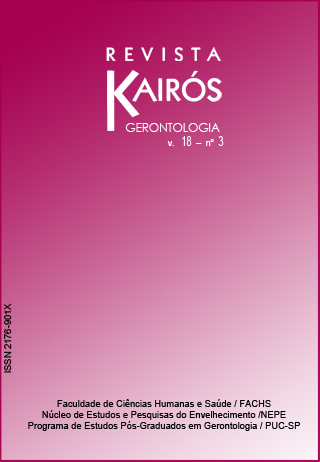Elderly widows: What changes after the death of a sick husband?
DOI:
https://doi.org/10.23925/2176-901X.2015v18i3p265-293Keywords:
Family Caregiver, Widowhood, Quality of life, Death, Stroke.Abstract
The theme of this paper concerns the strategies that may be foreseeable in order to minimize the negative effects brought to a familial caretaker without any guidance as to the caring and having to dispend a lot of time to a dependent relative. It is a descriptive, longitudinal study, which observes qualitative aspects supported by empiric evidence, with an extensive review of the literature in this field, which led us to an interdisciplinary approach. In this present stance we intend to interpret the data obtained from elderly widows that, after taking care of their husbands – affected by a Cerebral Vascular Accident – for a long period of time, they display, beyond the suffering from the loss of a loved one, compromises in many levels, such as physical, social and environmental. Being able to count on not only the Family Health Program, but also on a social network composed of relatives, neighbors and friends, may prove to be an efficient way for the wives to keep up their resilience in taking care of another and, at the same time, of themselves. We emphasize the need for new researches on this field, and that the caretaker usually needs, without exception, to be well guided as far as caretaking goes, but always having the concern of caring of himself/herself first so that he/she will be potentially apt to help others.


